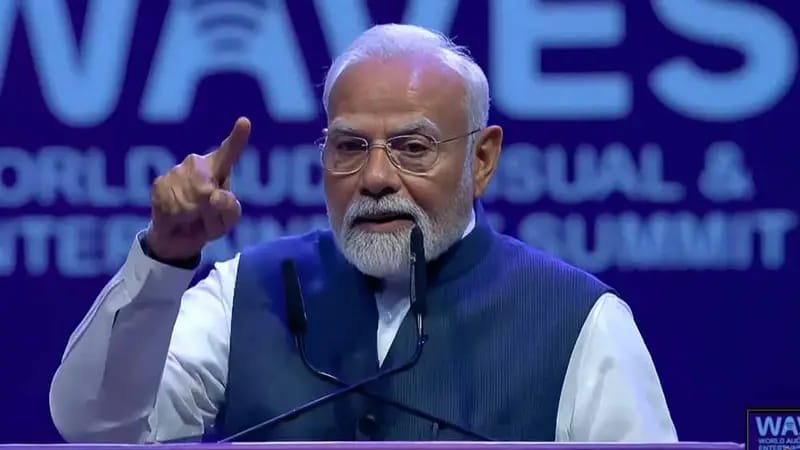India, on the cusp of becoming the world’s third-largest economy, is actively forging stronger international alliances, with Cyprus emerging as a key partner. Prime Minister Narendra Modi’s recent visit to the island nation underscored India’s rapid economic transformation and the vast opportunities it presents for Cypriot businesses. This strategic engagement marks a new chapter in bilateral relations, promising mutual growth and prosperity.
Prime Minister Modi highlighted India’s remarkable economic trajectory over the past 11 years. Propelled by “next-generation reforms,” policy predictability, a stable political environment, and an enhanced “Ease of Doing Business” framework, India has cemented its position as the fastest-growing major economy globally. The nation, currently the fifth-largest economy, is confidently poised to secure the third spot within a few years.
This impressive growth is underpinned by significant initiatives across various sectors. Tax reforms, including the Goods and Services Tax (GST) and rationalized corporate taxes, coupled with the decriminalization of certain laws, have fostered a business-friendly environment. Furthermore, a strong emphasis on “trust of doing business” alongside ease of operations has encouraged investment and innovation.
The Indian economy’s robust expansion has opened up myriad avenues for collaboration with Cypriot companies. Key sectors identified for partnership include:
Infrastructure Development: India’s focus on futuristic infrastructure, encompassing civil aviation, ports, and shipbuilding, offers substantial opportunities for Cypriot expertise and investment.
Digital Revolution: With around 50% of the world’s digital transactions occurring in India via the Unified Payments Interface (UPI), the country is a global leader in digital payments. Discussions are underway to integrate UPI for cross-border payments with Cyprus, benefiting both tourists and businesses.
Innovation and Technology: India’s vibrant start-up ecosystem, coupled with advancements in manufacturing, Artificial Intelligence (AI), quantum computing, semiconductors, and critical minerals, presents fertile ground for technological collaborations.
Financial Services: The signing of an MOU between the NSE International Exchange GIFT CITY, Gujarat, and the Cyprus Stock Exchange signals a promising future for engagement in the financial sector.
Tourism: Recognizing Cyprus as a renowned tourist destination, India, with its growing focus on destination development and management, sees potential for “win-win” collaborations between tour operators.
Green Development: India’s commitment to green development initiatives also offers avenues for partnership.
Prime Minister Modi’s visit, the first by an Indian Prime Minister to Cyprus in 23 years, underscored the importance placed on this relationship. The business roundtable, the inaugural event of the tour, highlighted the significance of business leaders in shaping India-Cyprus ties.
Beyond bilateral cooperation, the launch of the India–Greece–Cyprus (IGC) Business and Investment Council is a significant step towards fostering trilateral cooperation. This council will focus on crucial sectors such as shipping, logistics, renewable energy, civil aviation, and digital services, further solidifying regional economic integration.
Cyprus’s upcoming Presidency of the EU Council next year also provides an opportunity to strengthen the India-EU Strategic Partnership. Both leaders expressed optimism about concluding the India-EU Free Trade Agreement by the end of the year, which is expected to give a major boost to trade and economic cooperation.
The diverse representation at the business roundtable, spanning banking, financial institutions, manufacturing, defence, logistics, maritime, shipping, technology, innovation, AI, IT services, tourism, and mobility, reflects the broad scope of potential collaborations. As Prime Minister Modi aptly stated, the practical suggestions from the roundtable will form the basis for a structured economic roadmap, ensuring long-term collaboration in trade, innovation, and strategic sectors.
With shared aspirations and a forward-looking approach, India and Cyprus are poised to enter a new era of dynamic and mutually beneficial economic cooperation. This partnership not only promises to accelerate India’s economic ascent but also to unlock significant growth opportunities for Cyprus, cementing a strong bond between the two nations.
The strategic vision outlined during Prime Minister Modi’s visit to Cyprus transcends mere diplomatic pleasantries; it heralds a new chapter in global economic dynamics. The emphasis on next-generation reforms, policy predictability, a stable polity, and an unwavering commitment to ease and trust of doing business has transformed India into a powerhouse of growth, captivating the attention of nations worldwide. As India continues to leverage its demographic dividend, digital revolution, and burgeoning start-up ecosystem, it offers an unprecedented array of opportunities for international collaboration, particularly with partners like Cyprus. From futuristic infrastructure and advanced manufacturing to cutting-edge AI and semiconductor development, the avenues for mutual benefit are vast and varied. The bilateral and trilateral initiatives, including the proposed India-EU Free Trade Agreement, underscore a shared commitment to fostering robust trade and investment flows. This collective endeavour will not only accelerate India’s journey towards economic prominence but also unlock substantial prosperity for Cyprus and strengthen the broader global economic fabric. Ultimately, the unwavering confidence expressed by Prime Minister Modi encapsulates the essence of India’s trajectory: India is set to become the world’s third-largest economy, PM Modi. This pronouncement is not just a statement of intent, but a testament to a decade of transformative reforms and a clear roadmap for a future defined by innovation, collaboration, and shared prosperity on the world stage.

